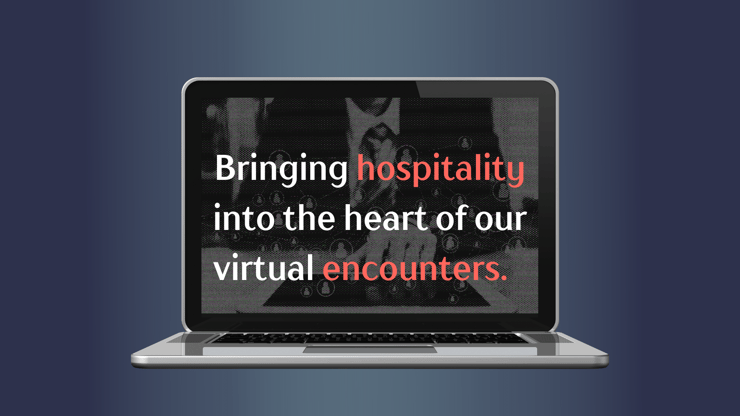We are approaching a year of living through a pandemic. And yet each morning we wake up and convince ourselves to go on as normal. Many of us face no alternative to doing the day online. Sometimes, this is energising: you find a new ‘life hack’, or have a particularly inspiring conversation with a colleague. But it can be immensely draining, too – especially if you have a team or an organisation to lead. And while experienced leaders will of course have tactics and strategies to keep on top of things, at a deeper level – a soul level, if you like – the sense of tiredness from life online accumulates.
What’s more, for all of its connective power, the digital sphere is fast becoming the fulcrum of our most bitterly spiralling conflicts. Turn to Twitter today and you’d probably catch your breath if you found a roomful of respectful disagreement. On any given day, click onto Fox News, then flick over to the New York Times, and you might as well have crossed an ocean. ‘Infodemics’, the virus-like spread of contradictory and often false news narratives over platforms such as WhatsApp, are now taken as seriously by the WHO as the pandemic itself.
At the Rose Castle Foundation, we have been following both of these trends closely. Through our ‘Rosebites’ series, we have been writing about the frustrations of living through video meetings – in one particularly lucid moment, a colleague admitted he has “often been tempted to give my laptop a good welly against the wall”. Our mission is to equip a generation of reconcilers engaging across difference to transform conflict. One thing this pandemic has helped to underline is that transforming conflict in the 21st century cannot be done only by meeting face-to-face. The internet is far more than a place to find information, buy stuff, and waste time. It is a space in which we have come to live. That is why it is incumbent on us to learn how to do so well. While the best thing for the digitally drained is still to take a proper break from screens, these retreats won’t last forever. The digital sphere is here to stay, and the reconciling leaders of the future must find ways to negotiate it. Being a leader in the 21st century means committing ourselves to spreading positive behaviour online as infectiously as fake news. Here at the Rose Castle Foundation, we think we’ve found a key – something we’re calling digital hospitality.

Cover image for RCF's Digital Hospitality workshop.
Hospitality, as we noted in our Habits series, has in many cases become a transactional service enjoyed by the rich in the era of the modern industrialised West. Yet traditionally, and in many non-Western cultures today, the relationship between host and guest is sacred. The Hindi greeting, namaste, actually means: ‘the divine being within me bows to the divine being within you’. The Arabic for ‘welcome’, ahlan wa sahlan, derives from a phrase meaning: ‘you have come across your own people or family, and you have stepped on your own dwelled land’. The traditional view of hospitality means to ‘see the face of God in every person’, whether friend or foe. Through our digital hospitality workshops, we seek to reclaim the virtue of hospitality as an expression of shared humanity, and cultivate it as a habit for life online.
That’s why we’ve put together our first ever open-enrolment workshop – and we invite you to join us there. The workshop will be an opportunity to share our struggles when working virtually. We’ll explore the challenge of building trust across digital divides, and learn creative methods of bringing people together in a way that enables deep-to-deep connection online. We’ll explore what it means to be a ‘risky guest’ in other people’s online spaces, and a ‘generous host’ in the spaces you hold.
If you’re interested, you can read more and register your interest here. We hope that those who join us on this workshop will feel reignited and reenergised to bring people together in a virtual space, to lead a group or organisation digitally both through the pandemic and in the longer term. It is our aim that you will leave feeling encouraged and supported to be a reconciling presence online. But whether you join us or not, please let me say to you both ahlan wa sahlan and namaste. For all of us, starting today, there is an opportunity to be more deliberate about our role as virtual hosts, guests, and peacemakers, and more careful about noticing tiredness build up within ourselves. I wish you the rest and the courage you need to reconcile and to lead.